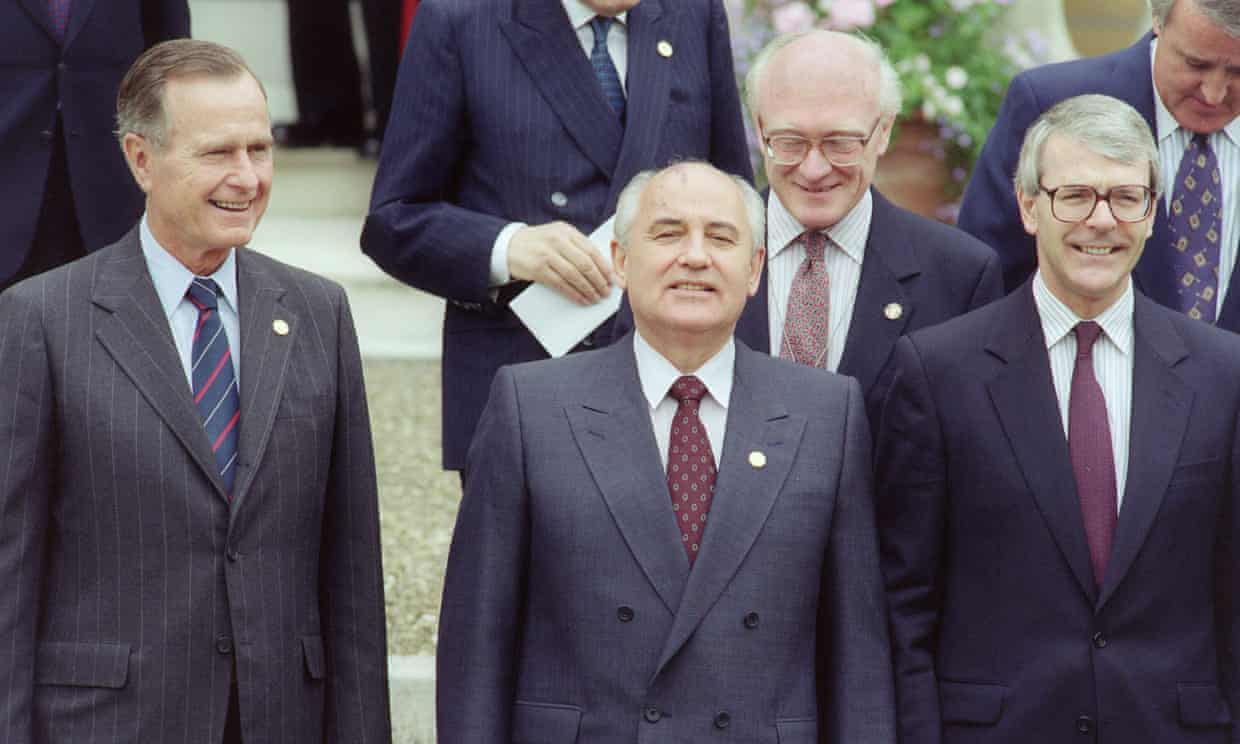Long before Vladimir Putin came to power in 2000, the stage was set for Russia’s current confrontation with the west by the failure to achieve a transformed and inclusive peace order after the collapse of the Soviet Union.
« click for more info »
Two incompatible narratives came into conflict after the Eastern Bloc began to crumble in 1989. For the west, nothing needed to change. The Atlantic community had effectively won the cold war, demonstrating the superiority of the western order, and thus all that was required was for Russia to join the expanded western community. The door was indeed opened, but the terms were not right. Boris Yeltsin made this clear, in an incoherent and contradictory manner. Putin ultimately made the same point, rather more forcefully. The west invited Russia to join an expanded Atlantic community, but Russia sought to join a transformed west and a reconfigured Europe, goals that remain active to this day.For Mikhail Gorbachev, the last Soviet leader, the end of the cold war represented a moment when Moscow could work with the western powers to create a new political community as equal founding members. The historical west, with Nato and the European Union at its core, would, in the Russian idea, become a greater west, with Russia a founding member of a new political community. This was accompanied by various Gaullist ideas to establish some sort of pan-continental greater Europe, stretching from Lisbon to Vladivostok.
But the Atlantic powers, fearing that Russia was trying to drive a wedge between its two wings in Europe and America, rejected these ideas. In practice, Russian and western views were not so far apart. What was required was some sort of reconciliatory framework, and it is this intangible but essential ingredient that has been missing in the post-cold war years.
Instead, the end of the cold war reinforced one side at the expense of the other, and without a transformation of world order. This means that in structural terms the cold war never really ended.
○ Merkel: Germany to heavily increase Bundeswehr budget | DW – Oct. 16, 2016
○ Germany rejects US pressure for Nato spending rise | BBC News – Apr. 1, 2017 |
How true, a statement by Clint Watts of George Washington University’s Center for Cyber and Homeland Security at the Senate Intelligence Hearing this week …
Russian deception influenced election due to Trump’s support, senators hear
Urging a response to Russian interference in the election, Watts said the US approach to Russia was provocatively ambiguous.
“I’m not sure what our policy or stance is with regards to Russia at this point in the United States. I think that’s the number one thing we’ve got to figure out, because that will shape how they interface with us,” he told senators.





